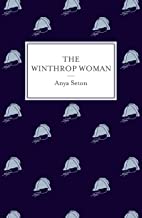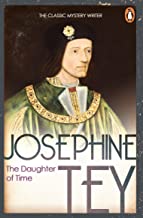
Anya Seyton. What a historical novelist she was. Born in 1904 in Manhattan, she died in 1990 in Connecticut. My attention was first drawn to her by a friend at college who – as almost every reader does – had fallen in love with Katherine. So I read that in the late 1960s and then, gradually the rest of Seyton’s wonderful, varied oeuvre in the years that followed, including Smouldering Fires (1975) which was one of her last.
Unusually for me, and perhaps because I tend to associate novels with where I was when I read them, I can remember exactly when I read The Winthrop Woman (1958). The first time was on a school trip to France in my first teaching job in 1970 when a waggish older colleague, who hadn’t read it, inaccurately dubbed it a “hysterical novel”. Then I came back to it on a family camping trip also to France, when my children were young, in 1984. It’s a meaty brick of a book so maybe, in those busy days, I needed to be away to get a run at it.
Even now I was glad of a five hour rail journey (and back) to Cornwall last week because The Winthrop Woman was the perfect companion. Not that Seyton is remotely difficult to read. She is a compelling, very accessible story teller – through whom, I have learned, over time a great deal of 17th and 18th century American, and other, history.
The Winthrops were a leading family in the migration of settlers to the east coast of America in the early 1600s. They were prosperous in Suffolk but felt the pull of a new life where they could be true puritans – devout believers wishing to cleanse (purify) their lives from anything tainted with Catholicism, newish conventional Anglicanism or even paganism which involved traditions such as dancing and maypoles.
Elizabeth “Bess” Winthrop, niece of the famous John Winthrop (whose son, Bess’s cousin, was eventually Governor of Connecticut) was a much freer thinker – not least, according to Seyton, because of a ruthless, public beating at her uncle’s hand, back in her Suffolk childhood. Not that John Winthrop is a villain. All Seyton’s characters are roundly multi-dimensional – often misguided and/or misunderstood but rarely evil.
The life which awaits them, once they’ve survived the perilous trip across the Atlantic, is primitive but gradually improves as they build substantial homes and cultivate land – and that’s a huge problem because, of course, native Americans (“Indians”) have been there for millennia and naturally resist invasion and attempts to wipe them out. It struck me more forcibly than ever before on this third reading of The Winthrop Woman that white settlers from England, Holland, France and elsewhere behaved appallingly and indigenous Americans – whose descendants still protest today – suffered terrible losses and treatment. Seyton presents it in a nuanced way, though, because Bess is not hostile to Indians, makes a friend of Telaka whom she rescues from slavery and helps Telaka’s brother which turns out to be a life saver.
Bess Winthrop – trying to put a distance between herself and her uncle although she is very fond of his third wife, Margaret – marries three times and bears lots of children, most of whom survive. First there’s the passionate and exciting cousin Harry who dies in a drowning accident. Then there’s the dull but usually harmless Robert Feake who is mentally ill and, in fits and starts, gradually gets worse. Finally she marries (not without untold complications) Will Hallett – a real love match. She first meets him on the trip out from England and he crops up occasionally in her life from there on. She loses everything several times for various reasons and, somehow, finds the strength to start again – repeatedly. In real life Will Hallett, incidentally, did eventually achieve stable prosperity and lived to be 94, an extraordinary age for those times.
If you have yet to discover the joy of Anya Seyton, you have a treat in store. Take The Winthrop Woman on a long flight and prepare to be engrossed, moved, informed and entertained.

Next week on Susan’s Bookshelves: The Hologram and Other Sinister Stories by Stewart Ross.





















